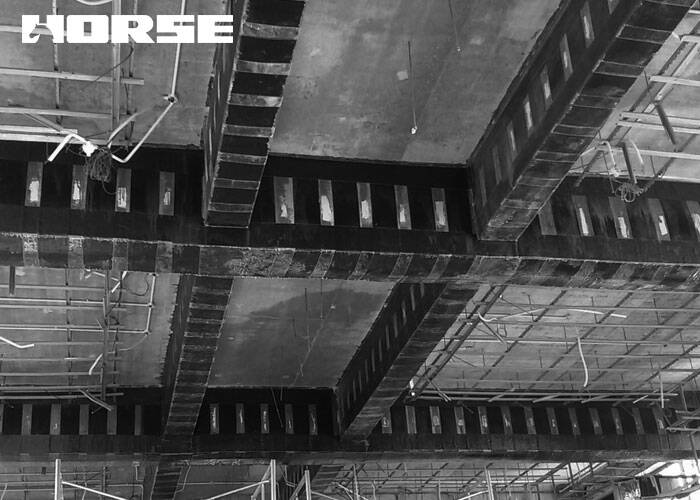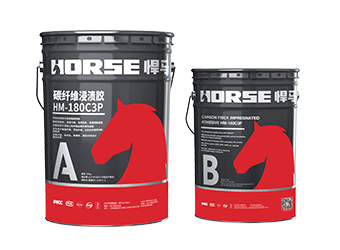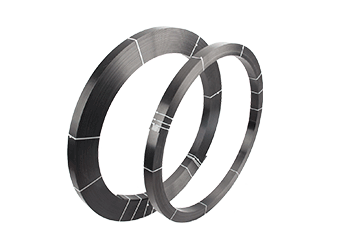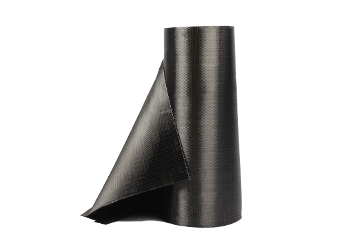Solusi
Horse Construction menawarkan rangkaian lengkap material perkuatan struktur dengan dukungan teknis, dukungan dokumentasi, dukungan produk, dukungan perangkat lunak, dukungan proyek.
CFRP reinforced concrete beams

In modern buildings and bridges reinforcement technology, CFRP materials as a new type of composite material has been widely used. Compared with traditional reinforcement methods, its advantages include: high strength and high efficiency, convenient construction, wide application range, good corrosion resistance and basically no increase in the weight and size of the structure.
However, CFRP materials and adhesive materials have different thermophysical parameters from concrete. When the reinforced beam is under the action of temperature load, it will produce interface normal stress and shear stress. The shear stress will seriously affect the bonding effect between the reinforcement material and the reinforced concrete beam. If handled improperly, under strong temperature load, because it is in areas with strong temperature difference, concrete and carbon fiber materials may even peel off, thus losing its reinforcement effect.
Therefore, analyzing the distribution law of the interface stress and its relationship with temperature and adopting corresponding reinforcement measures are of great practical significance to ensure the reinforcement effect of houses and bridges.

Considering the distribution of shear stress in the cross-section of RC beams strengthened with CFRP under the action of temperature changes and dead weight, the following conclusions are drawn:
(1) The self-weight and the load directly borne by other external beams have little effect on the interface shear stress and can basically be ignored;
(2) Under the action of temperature load, stress concentration occurs at the bonding end of the CFRP materials and the RC beam body, and the shear stress reaches the maximum value, and it rapidly decreases to zero along the mid-span direction. For CFRP materials to strengthen RC beams, the effect of temperature load will seriously affect the bonding effect of CFRP materials and RC beam body. If it is improperly operated during the reinforcement process, it is easy to peel off;
(3) The interface shear stress increases rapidly with the increase of temperature load, and the relationship between the two is close to linear. In order to ensure the reinforcement effect and prevent the occurrence of peeling damage at the beam ends, the ends must be anchored during CFRP reinforcement.
Anda dapat menemukan segala yang Anda butuhkan di sini. Percayalah dan cobalah produk - produk ini, Anda akan menemukan perbedaan yang besar setelah itu.

Viskositas rendah, impregnasi yang baik, dengan sifat tiksotropik tertentu, digunakan untuk impregnasi dan pasta permukaan komponen yang diperkuat dan produk serat. Peran perekat serat karbon Horse adalah untuk sepenuhnya meresap ke dalam produk serat, dan

Pelat polimer bertulang serat karbon (CFRP) Horse adalah pelat komposit yang diawetkan terlebih dahulu, yang diikatkan ke struktur sebagai perkuatan eksternal dengan epoksi HM-120CP.

Serat karbon Horse Construction digunakan untuk perkuatan struktural, perbaikan, dan perbaikan substrat beton, pasangan bata, baja, dan kayu pada bangunan, jembatan, jalan raya, rel kereta api, terowongan, dermaga, dan bandara sipil.